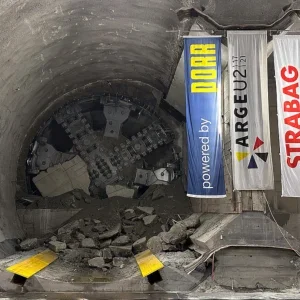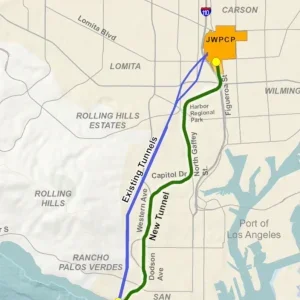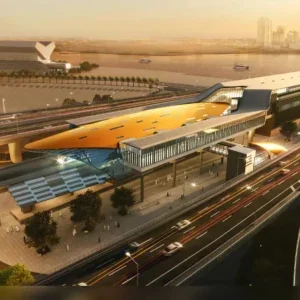In a report released today, the National Audit Office (NAO) says project costs will rise because of stopping and restarting work, contractual changes, and managing the project for longer.
On March 9 transport secretary Mark Harper announced the high-speed rail line north of Birmingham – to Crewe and Manchester – would be delayed by two years, meaning the service to Crewe may not be open until 2036, and Manchester not until 2043. He also said that while the government was committed to HS2 trains eventually terminating at Euston Station in central London, for now it was prioritising the service between Old Oak Common in west London and Birmingham.

HS2 Ltd also reported in March that the latest cost estimate for Euston Station’s 10-platform design was £4.8bn, £2.2bn more than its budget.
The NAO says the government should use the two-year pause on new construction work at HS2 Euston “to develop a design that is affordable, deliverable and value for money”.
The report recommends the Department for Transport works with the Euston Partnership, HS2 Ltd, Network Rail, Lendlease and local partners to reassess the expectations for the HS2 Euston project, its budget, and the public benefits. It also suggests setting out “clear aims and measures as part of the programme reset and applying the lessons it has learned to HS2 Manchester stations and other parts of the programme”.
The new Euston Station had already come under the NAO’s scrutiny. In January 2020 the NAO reported that the work was more complex than anticipated and there was uncertainty over the station design.
The following month the Oakervee Review, the government’s official review into HS2, found the existing station design was unsatisfactory.
In November 2020, the Department for Transport (DfT) instructed HS2 Ltd to pause construction on the 11-platform design to begin work on a new 10-platform plan. In autumn 2021 the DfT also directed HS2 Ltd to integrate more closely with Network Rail’s redevelopment of the existing rail station and confirmed the extent of the surrounding commercial and residential developments. Much of the previous design work was then scrapped, at a cost of £106m to the taxpayer.
To help with this integration, in December 2021 the DfT established the Euston Partnership to bring together the different bodies involved with projects on the Euston site, including delivery of HS2 Euston station.
Head of NAO, Gareth Davies, said the 2020 reset of the station design had clearly not succeeded.
“DfT and HS2 Ltd have not been able to develop an affordable scope that is integrated with other activity at Euston, despite their focus on costs and governance since 2020. Recent high inflation has added to the challenge,” he said.
He added that the pause on new construction work should give DfT and HS2 Ltd time to put the HS2 Euston project on a more realistic and stable footing. “However, the deferral of spending to manage inflationary pressures will lead to additional costs and potentially a more expensive project overall, and that will need to be managed closely,” he said.
At the same time, HS2 has announced that a rebar threading facility set up for the Copthall tunnel construction site in Hillingdon has resulted in a “significant financial saving” by reducing waste, costs and lorry movements, and overall creating a more efficient way of working.
The facility, which will make 92,000 rebar couplers for the tunnel, was established after Skanska Costain Strabag joint venture (SCS JV) faced supply issues with prefabricated fatigue rated rebar couplers after suppliers exited the market.
To construct the 880m-long cut and cover Copthall tunnel, 92,000 fatigue rated couplers are required. A team of 14 will work at the facility six days a week, eight hours a day for three years.
SCS JV buys stock rebar and completes processing operations on site, before taking it through the four-step threading process and delivering it to the Copthall tunnel construction area.
SCS JV senior project manager Ray Moloney devised the solution.
“Uncertainties in the market and the need to meet the requirements of the HS2 construction programme meant we had to look at an innovative solution for supplying fatigue rated mechanical reinforcement connections. In mid-2022 we started engaging with partners, including Leviat and CARES, to develop an on-site processing scheme and within 20 weeks, we were processing our first order,” Moloney said.
HS2 says the model offers a new blueprint for how the manufacturing of materials can be done on site and significant benefits to other construction projects. The facility has also provided fatigue rated couplers to other HS2 works being delivered by SCS JV to support overall delivery and de-risk supply chain delays.
The team is now looking at how to improve productivity in the manufacturing process to create additional capacity to support other supply requirements across HS2.







